Collapsible, battery powered, bright, articulated head.
Super flashlight
Large flashlight based on a 60W equivalent bulb
Large flashlight based on a 60W equivalent bulb
To make the experience fit your profile, pick a username and tell us what interests you.
We found and based on your interests.
Collapsible, battery powered, bright, articulated head.
50W 12V MR16 bulbs are $16 at the homeless despot. The base is another $5 snail mail affair. It would be more compact & more focused but much heavier than the home made solution. More importantly, lions have already invested a hefty sum in the existing solution. Commercial flashlights may not do what the super flashlight can do, but they're much cheaper.
There was an attempt to extract just the LEDs from an MR16.
Helas, they're 3 strings, each 94V & the boost converter is potted. Each chip is 23V. To save money, they use the same LED board as the 120V GU10. The form factor & the lens would be an improvement although it doesn't capture as much light as a reflector. Given the heating from running it outside the glass enclosure without a current regulator, it would have to run below its rating & probably have less brightness than the cheaper bulb with reflector.
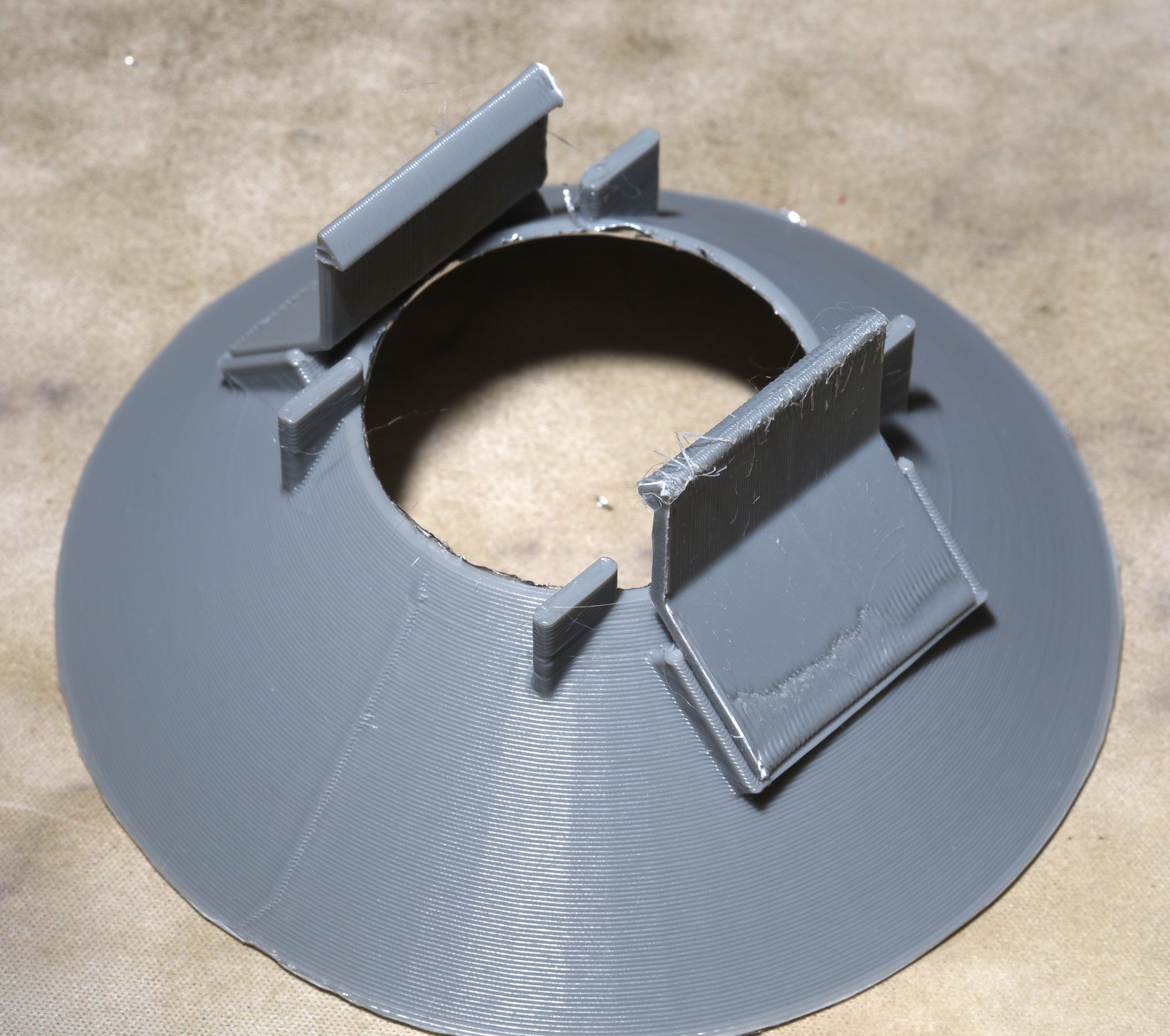
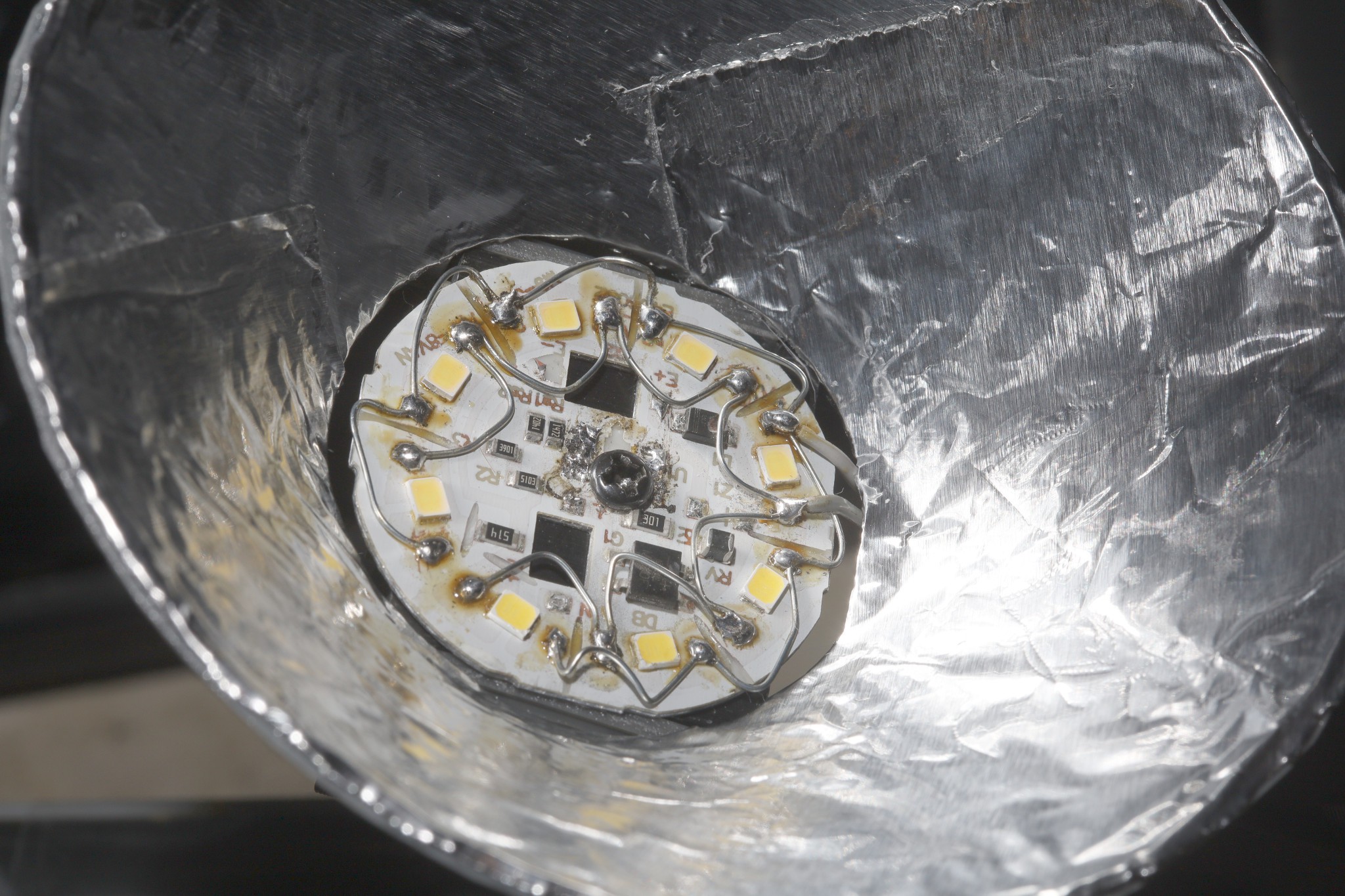
This one was set back to capture all the light from the LEDs. It can only be offset by the difference between the heat sink & LEDs.
It was offset to more closely center the LEDs.
After 2 test prints, the clips were still off, but a good enough compromise between time & accuracy. The margins have to be loose.
The PETG laminations have already come apart from inserting the shroud.
It was slightly larger than reflector 1.
This one made an easily visible difference in brightness. Definitely worth it when weight doesn't matter. Still probably not worth it on a headlamp.
After all that work, it occurred to the lion kingdom that a 12V MR16 would probably give better results than any home made reflector, be more efficient, more compact. It's just a matter of higher cost & weight.
A way to focus the beam has always been desirable. It's not as size constrained as a headlamp. The leading candidate is a 3D printed mirror reflector. The chip LEDs are always going to have more stray light on the sides than integrated lens LEDs so a reflector cone is their biggest ally.
https://www.amazon.com/FunStick-Flexible-Stickers-Adhesive-Reflective/dp/B09NFDVKG7/
There is adhesive mirror film which could go on a cone structure. The dollar store has a reflective phone case with recoverable film. There could be an aluminum foil prototype.
The mane problem is it would be bulky. It would have to be removable. There could be a clip on system that goes onto the existing light.
There was this thing, made by elmering aluminum foil on PLA. It was poorly aligned because the LED is not centered on the heat sink.
This produced a slight increase in brightness. It's not noticeable by the naked eye. Wouldn't consider it worth weighing down the headlamp. It might be useful on the super flashlight with a more perfect mirror & alignment tweeks.
The lion kingdom has hacked flashlights since the early 2000's but was never excited about the original movie. If anything, the movie convinced lions the batteries wouldn't last long enough. 40 years later, there's enough battery power for any light.
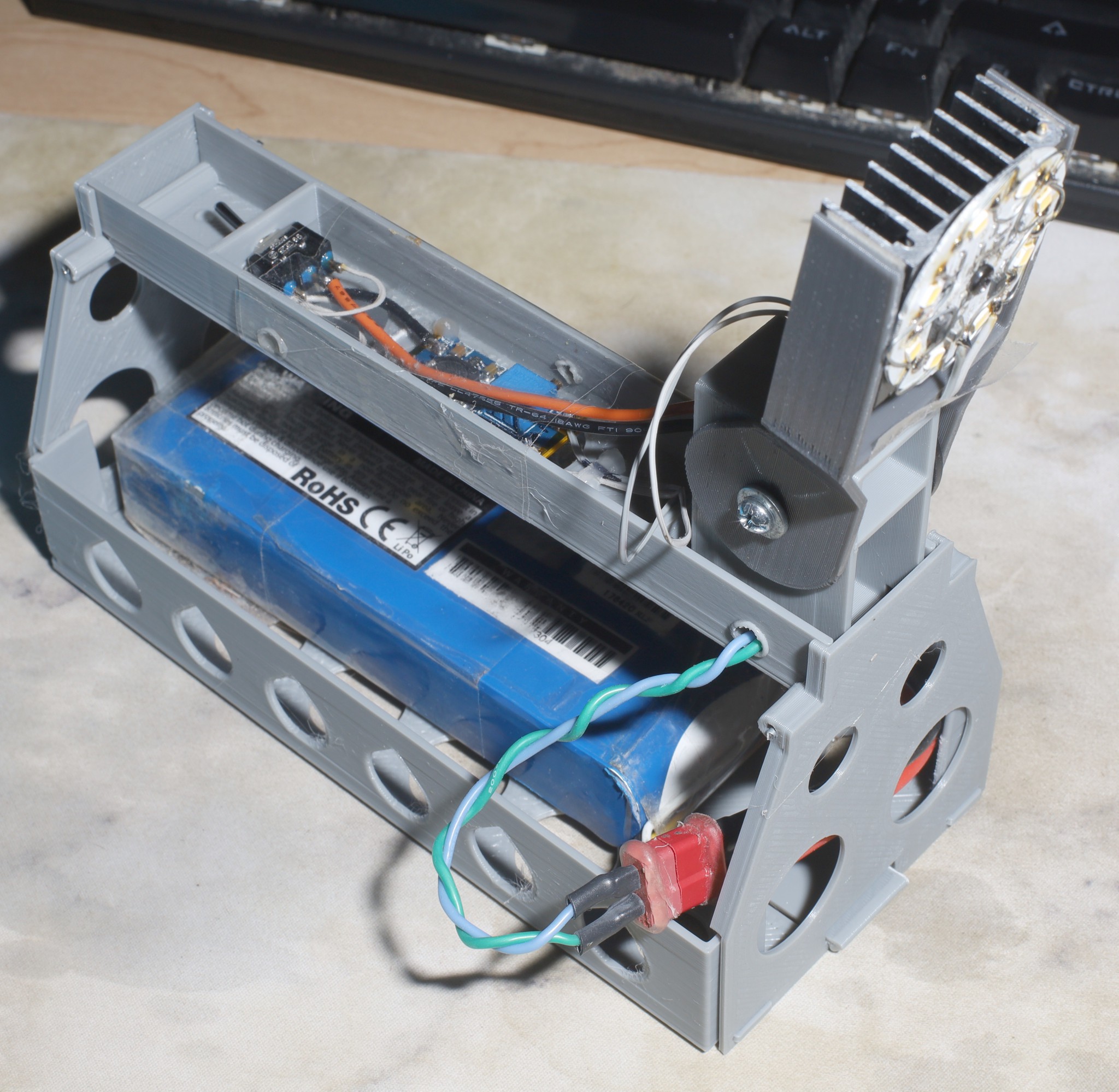
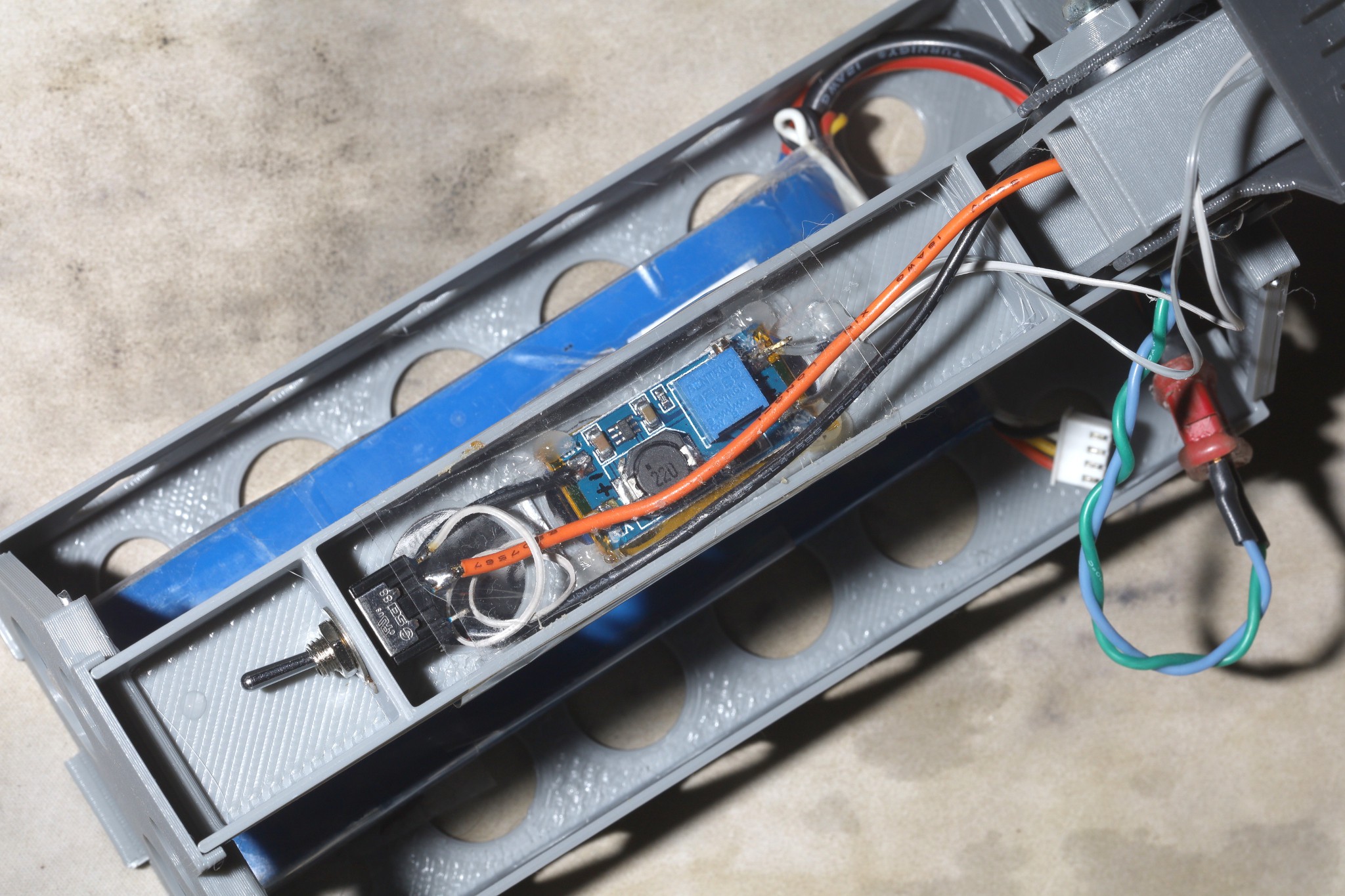
After many experiments, found the ideal battery cable route to be right under the hinge in front. That allows it to fully collapse & keeps all the cables away from the paw. The biggest problem was cables getting tangled in the paw.
https://www.amazon.com/dp/B089Y7NDCR
Converted it to a dedicated buck converter, for no other reason that to save space, make it lighter & to fry a buck converter the usual way. Note input + & - on these get covered by hot snotting the corners.
These are rated for 2A & the flashlight is putting .3A 16.7V out in the worst case. The handle is still about the right size for the cables & a lion paw.
It could use a lid over the electronicals. The holes under the buck converter are problematic. The PLA rivets have to be moved in to the new form factor. The switch should go in the lid too.
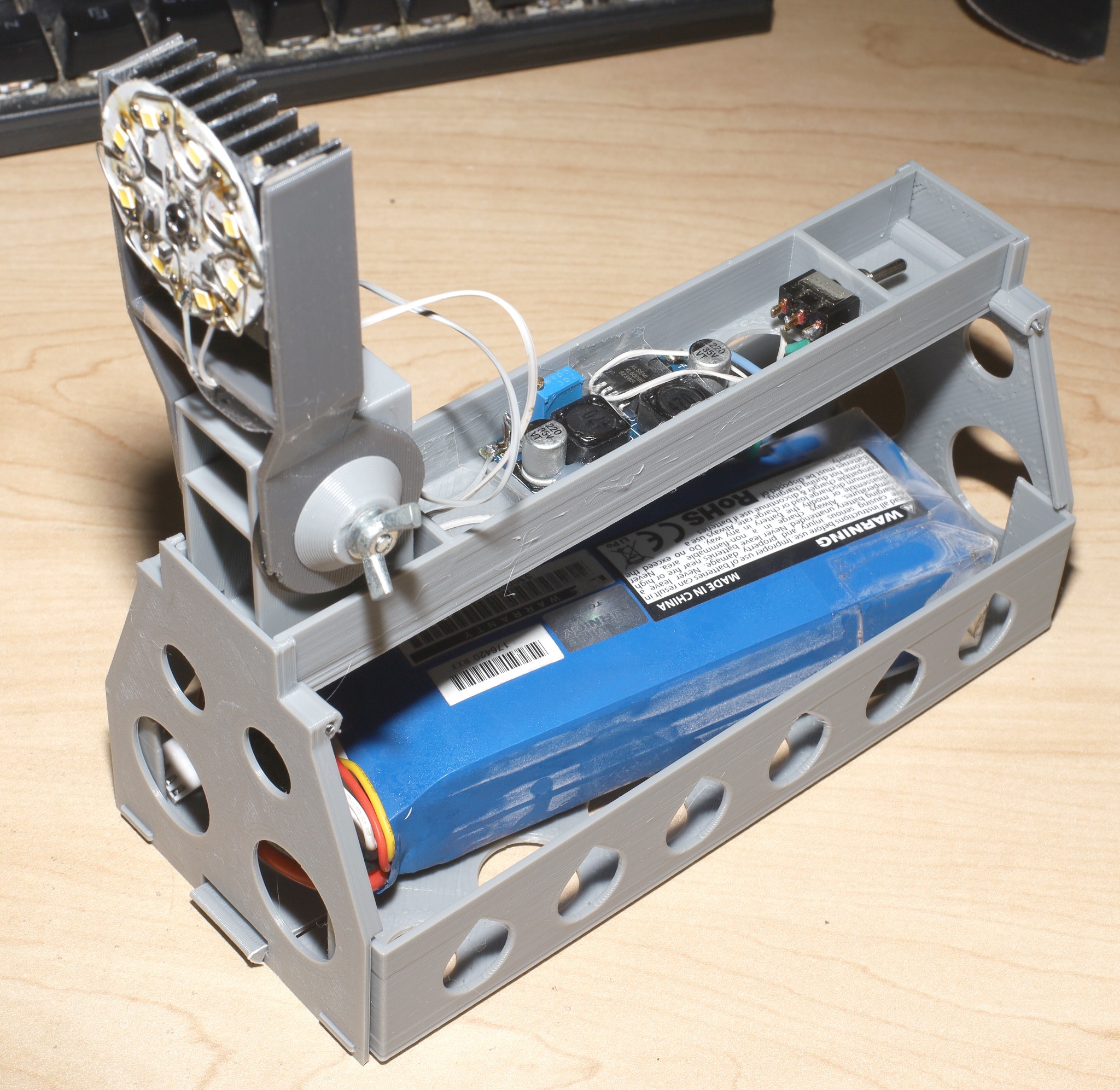
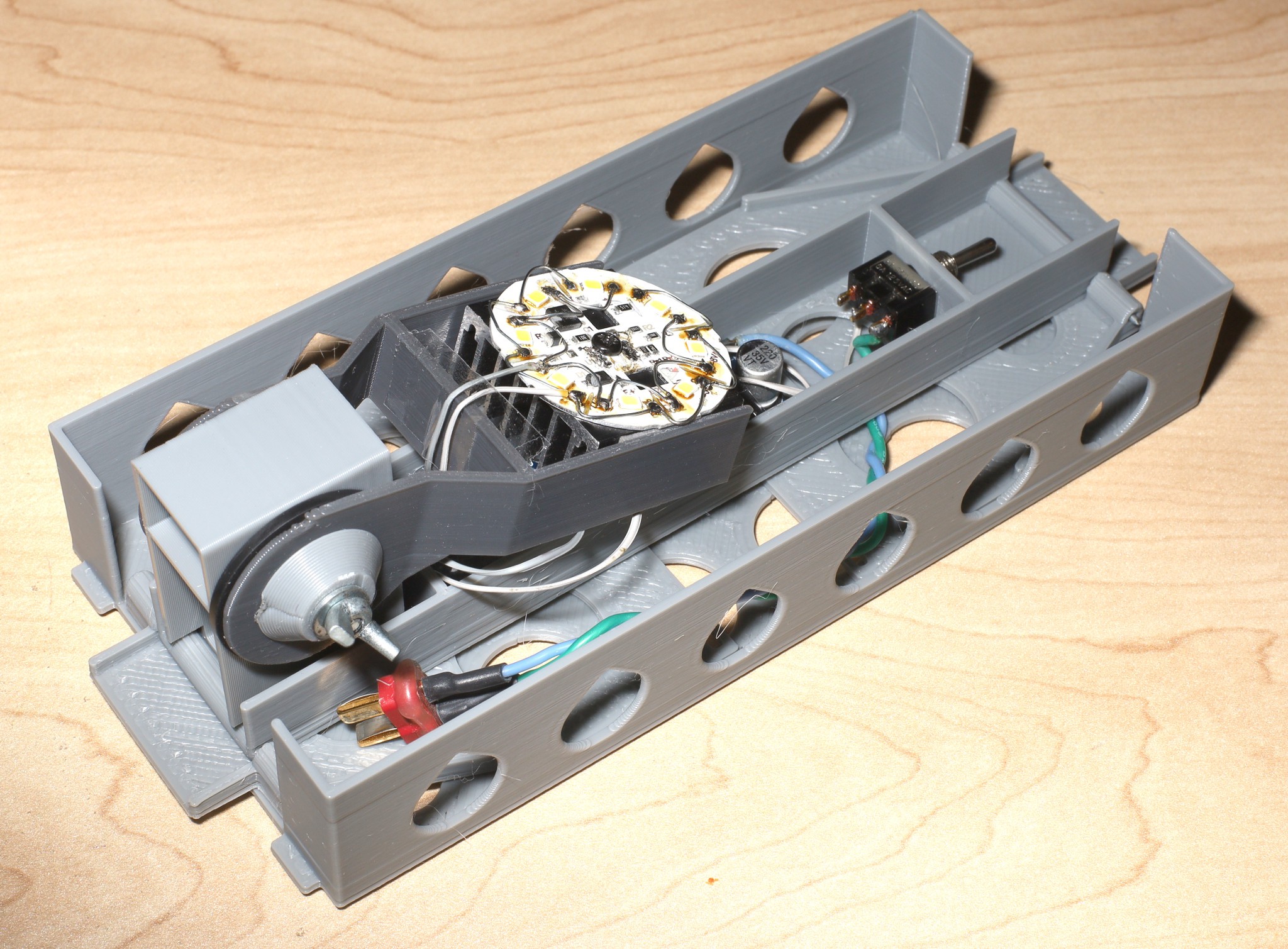
Another final design which ended up an incremental improvement. It collapses the smallest of any of them. It would collapse further if the hinge was right on the bottom, but this would interfere with the bits needed to stabilize the legs.
It's rigid despite using panel legs.
It stands on its end. This requires unbolting the light. The washer spreader really needs knurls.
Another way to stand on its end while disassembled is less stable.
Tongue & latch design attaches the panels at right angles without tools.
Switch is a real pain to install, even with the tool. It might be smarter to stick it out the side. It's not ideal to have the battery cable going down the handle instead of sideways. It might actually be best to go up & over the side. These are really minor details.
The switch tool gets just enough grip to tighten the nut but isn't as easy to use as hoped
Disappointing to have all the locking mechanisms exposed on the bottom & prone to getting knocked loose. As usual, the ugliest panel design is the most practical.
Maybe the battery tray could carry other junk.
Comparison with other light sources.
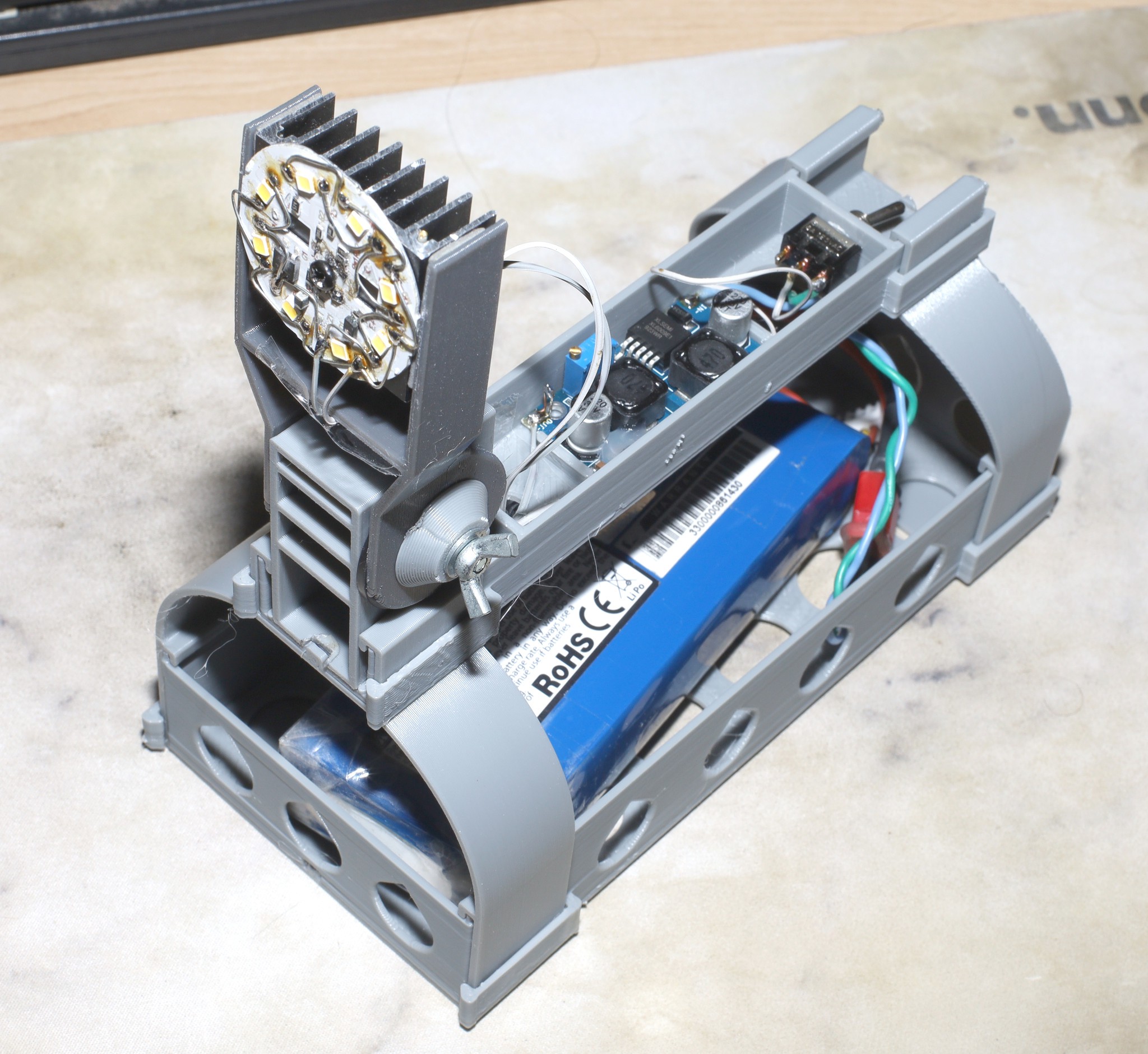
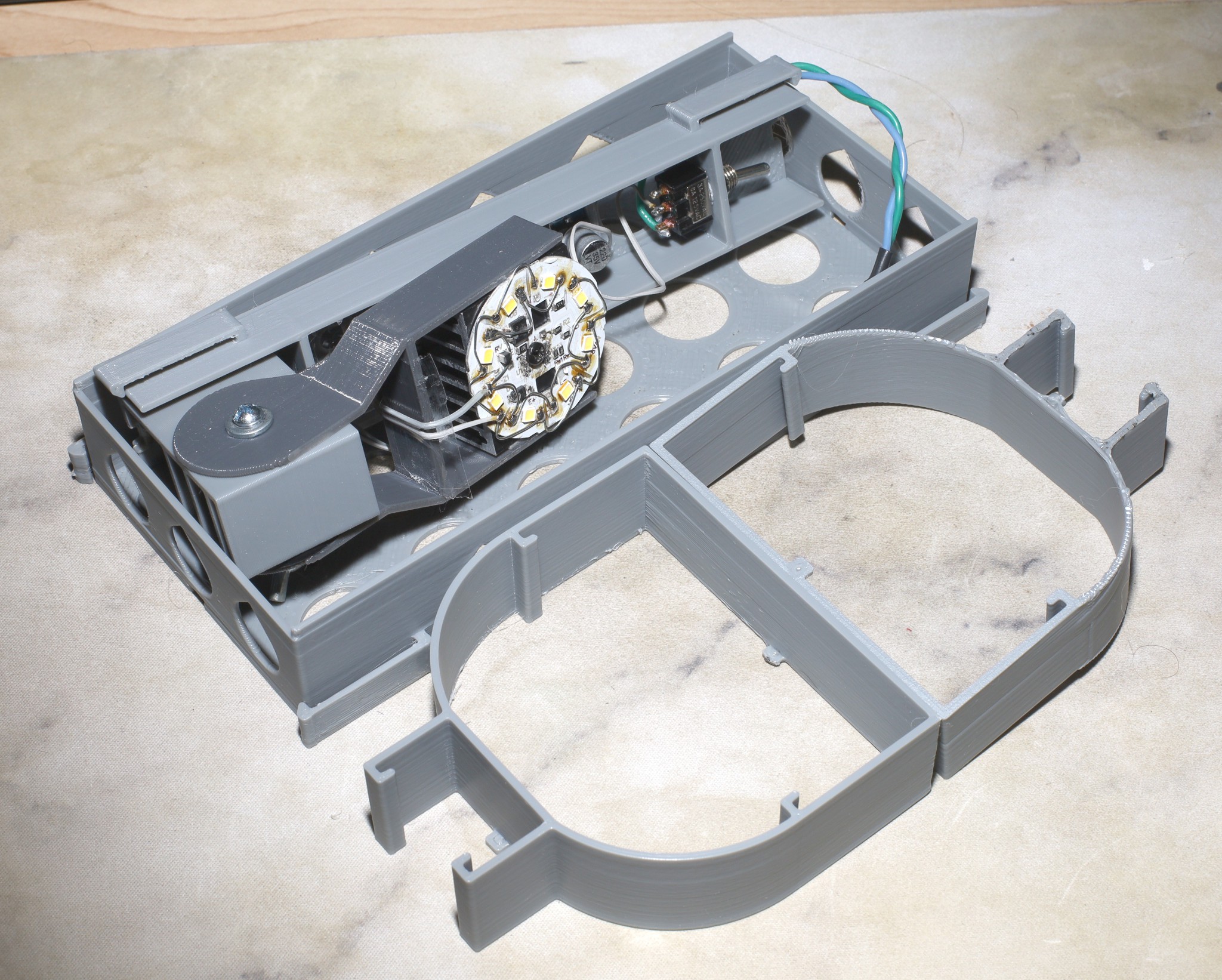
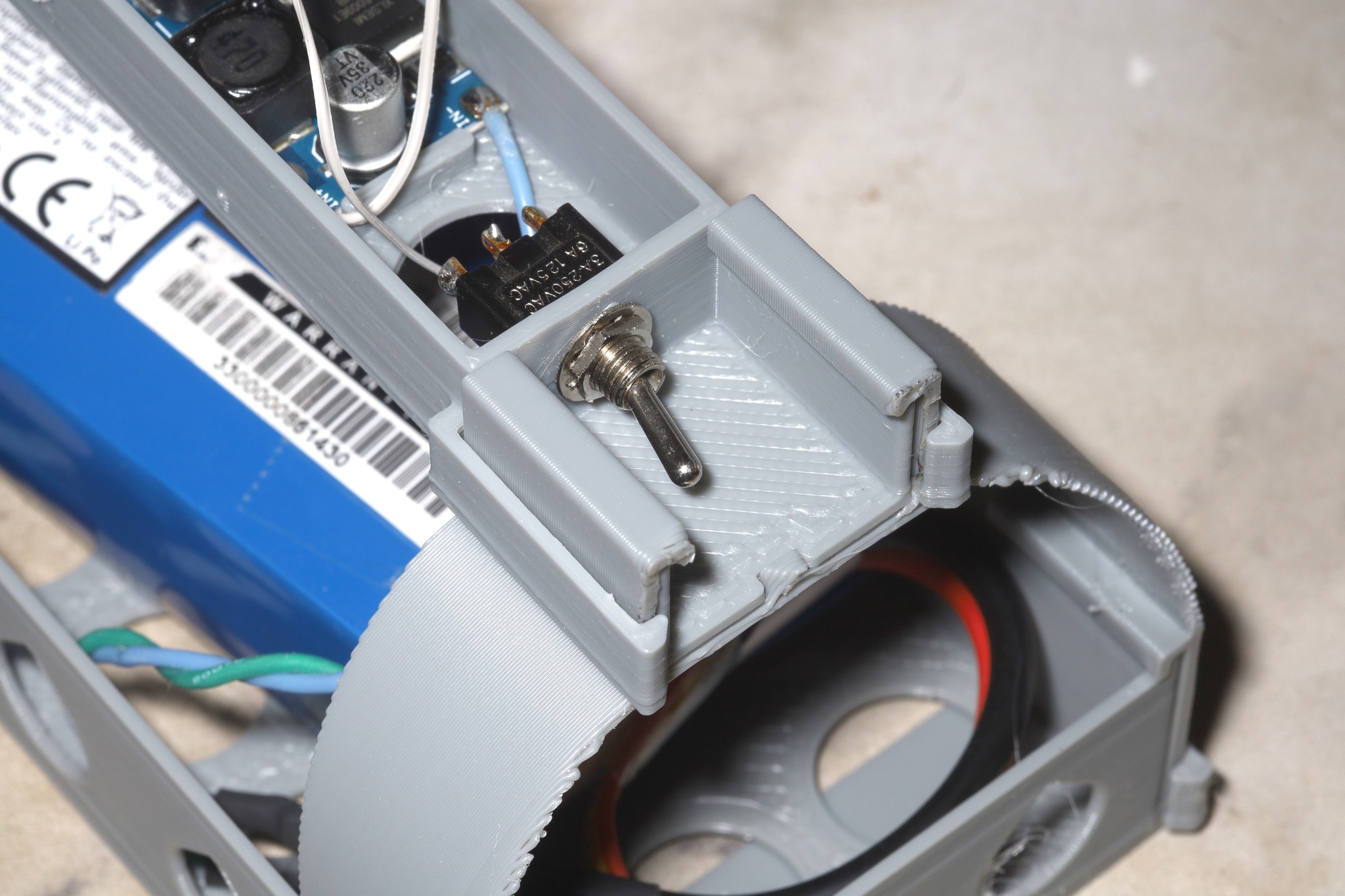
Attempt 2 got a lot right. 1 trick is installing the switch requires a custom tool: wrench.FCStd
It burns 4W when it's cold, rising to 5W when the LEDs warm up.
Making the handle short enough to fit in the battery tray required making it harder to fit the battery in the sides, but it does fit in the front & back.
There is still a desire to turn the legs into 2D panels which fold completely flat. The mane challenge is it requires the battery tray to get a hair longer & become a trapezoid. The battery would only fit in the sides & it would wobble a lot more. It would be worth millions in rent.
Another desire is to stand it on its rear end, so the back needs to be flat.
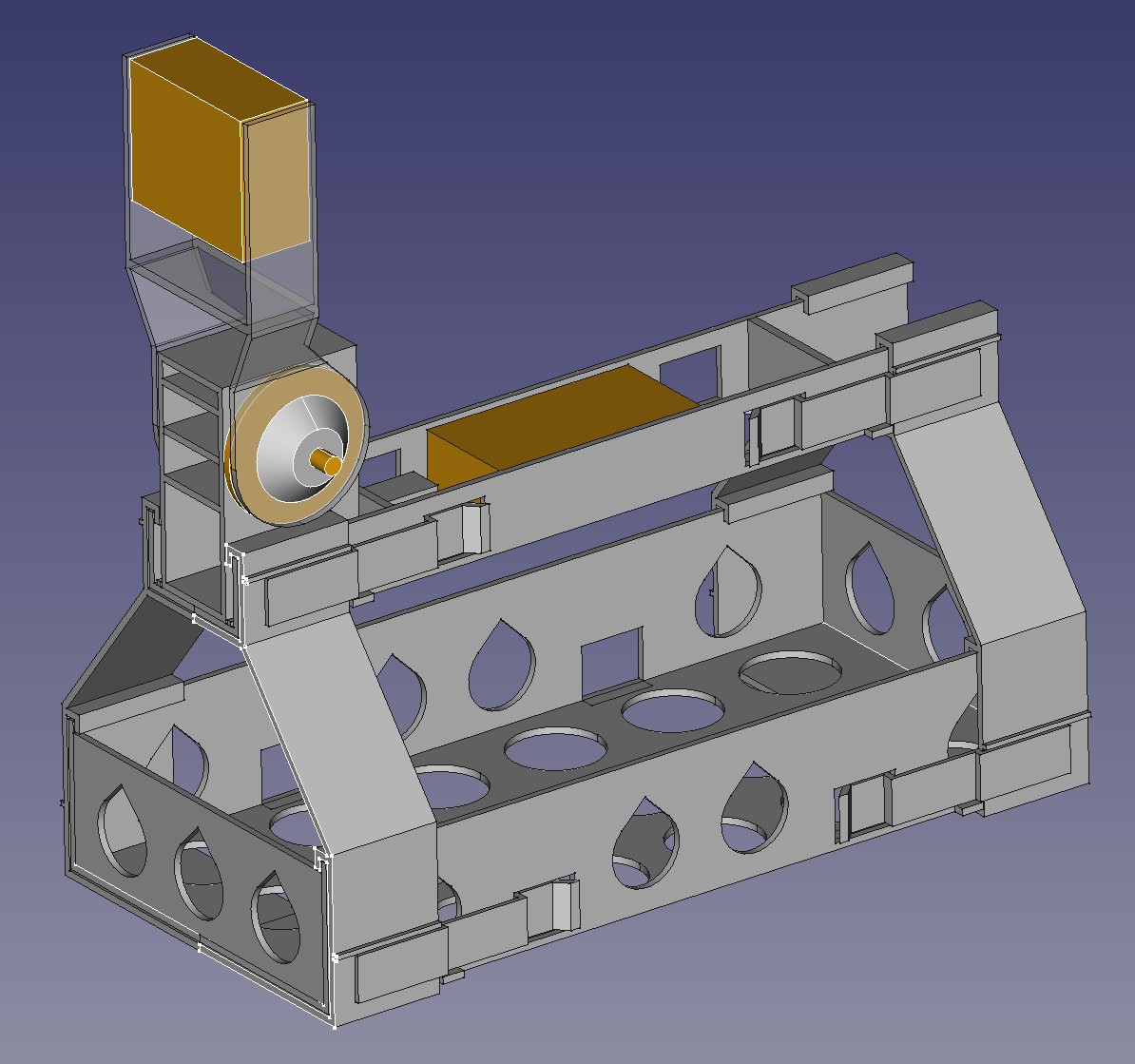
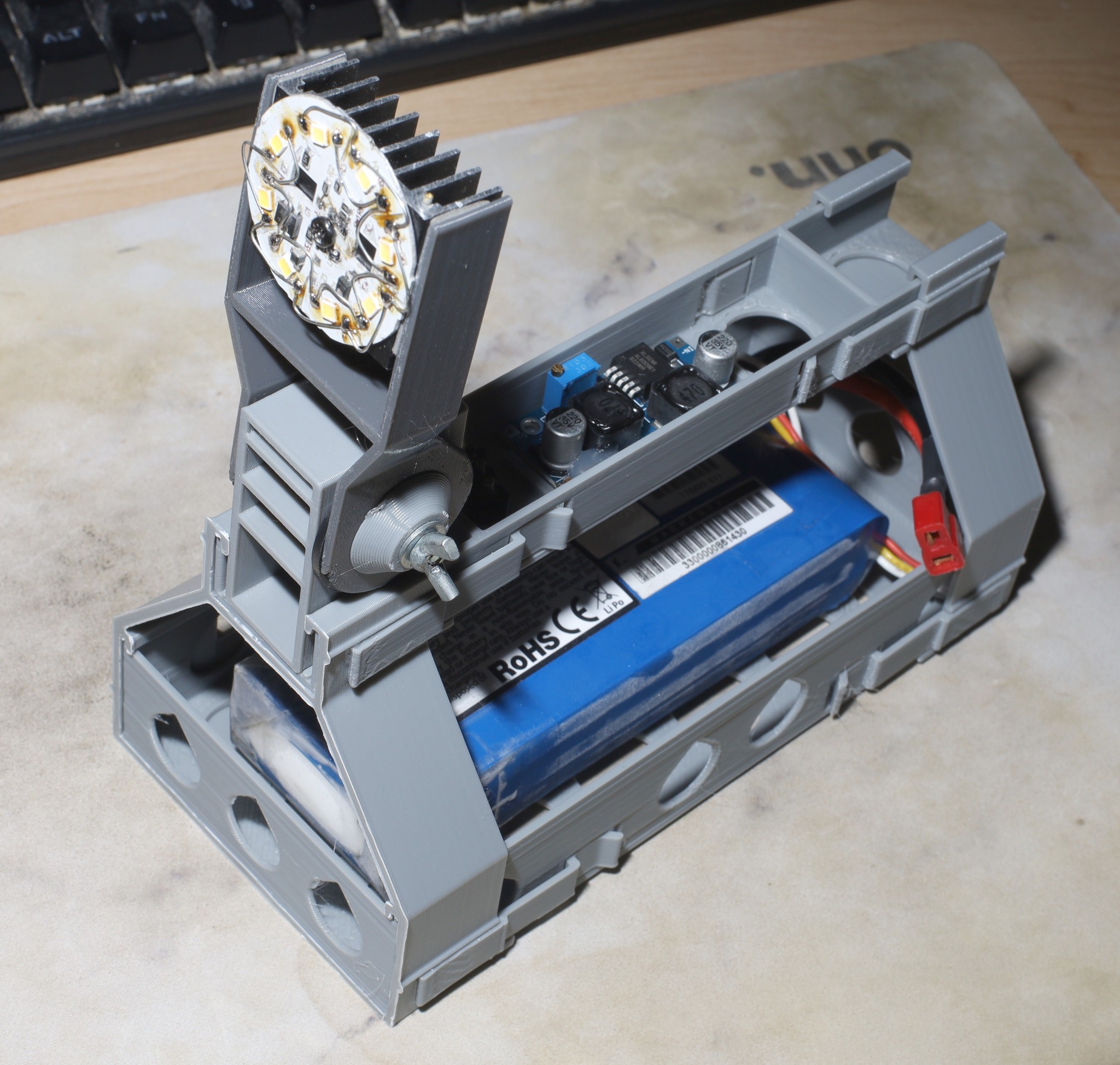
It took years to come up with something that met the requirements on paper. The leading idea eventually became clamp on legs with a bathtub for the battery. The 1st printout instantly revealed the problems. The clamps instantly came loose with any tugging, although the 8 were redundant enough to keep it together. It was not possible to undo the clamps near the switch without a tool. The battery didn't fit through the front & back. It had to go in the sides. The clamps had to bend too much to get in. They might require a .4 nozzle to be sharp enough to not need such a depth. They could also be longer.
The clamps should be built into the bathtubs & grab in front & behind the legs. They would be more assertive & wouldn't need to be separate parts. The 1st prototype might still work in a pinch.
If the diagonal legs were straight or curved, the battery could go through the front & back.
Storage was manely impacted by the clamps sticking up. Z seam placement is killing the legs.
If the top bathtub was slightly shorter, it could be stored inside the bottom bathtub. A tweak to the rear legs could make the top shorter.
The holes in the sides made it hard to get the clamps on. The area where the clamps slide has to be flat & needs some kind of guide. It can be thinner.
The quest began for a low voltage cutoff. They all currently require building a discrete circuit. There's no single chip solution for 10V or 6.7V. The MCP120 was a TO-92 cutoff for 5V only. The search term is supervisor. It's going to be easier to have an unregulated pilot light show the charge level, since the mane light is constant brightness.
Create an account to leave a comment. Already have an account? Log In.
Become a member to follow this project and never miss any updates